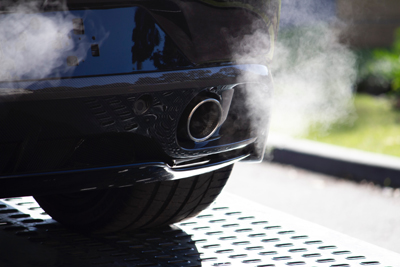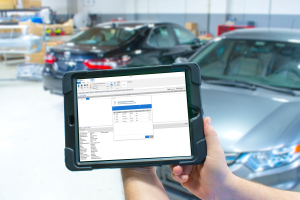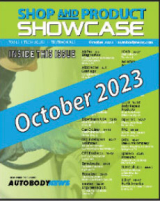Delaware is planning to enact some of the most stringent regulations for vehicle emissions in the nation, as the Carey administration seeks to curb tailpipe pollution contributing to greenhouse gas emissions.
The new regulations, drafted by the state Department of Natural Resources and Environmental Control, would adopt California's newly approved Advanced Clean Cars II standards, which require vehicle manufacturers to sell an increasing percentage of new zero-emission passenger cars and light-duty trucks in model years 2026 through 2035.
State environmental officials say the rules will lead to more zero-emission vehicles on the road in Delaware, which will in turn reduce gasoline and diesel fuel consumption, and maintenance costs due to more fuel-efficient vehicles. They held a series of public hearings in December to discuss the state's plans.
"Delaware is preparing for a transition to a clean transportation future," Shawn M. Garvin, secretary of the Department of Natural Resources and Environmental Control, said in a statement. "More choices from manufacturers, longer range and affordability are making it easier for consumers to switch to cleaner vehicles, including electric vehicles."
The move will make Delaware one of a handful of states, including Washington, Oregon, Vermont, New York and Massachusetts, to adopt California’s stringent rules.
Environmental groups say the move will help the state meet its climate change goals, which call for reducing the state’s greenhouse gas emissions by 26% to 28% by 2025, from 2005 levels.
Transportation is the leading source of greenhouse gas emissions in Delaware, according to state environmental officials.
The state signed onto the U.S. Climate Alliance in 2017, making a commitment to reduce carbon emissions by at least 26% by 2025.
Critics say adopting California's standards will have a cost for consumers, but also businesses and local governments that use trucks for delivering freight and goods, and providing other services from municipal trash collection to construction.
Meanwhile, Republican lawmakers have criticized the Carney administration’s decision to enact the strict new vehicle regulations with little or no legislative input.
State Rep. Jessie Vanderwende, R-Bridgeville, said the accelerated switchover from fueled vehicles to electric will "collectively cost consumers, utilities, businesses and the state and federal governments uncounted hundreds of millions of dollars."
"Without any consent or input from the public’s elected legislative representatives---Gov. Carney and the agencies under his command are seeking a rapid, potentially traumatic, transition to electric vehicles, despite unresolved massive logistical, environmental, social and economic concerns," he said in a statement.
Vanderwende said he plans to introduce legislation in the new session to scale back the "coercive" regulations, arguing the industry should be responsible for the transition away from gas-powered vehicles.
"Most of the major players in the automotive industry have already made ambitious plans to either shift most or all of their product lines to electric vehicles," he said. "Carmakers, dealers and citizens will move to electric vehicles on their own as the technology matures, problems are addressed, and EVs become more attractive."









